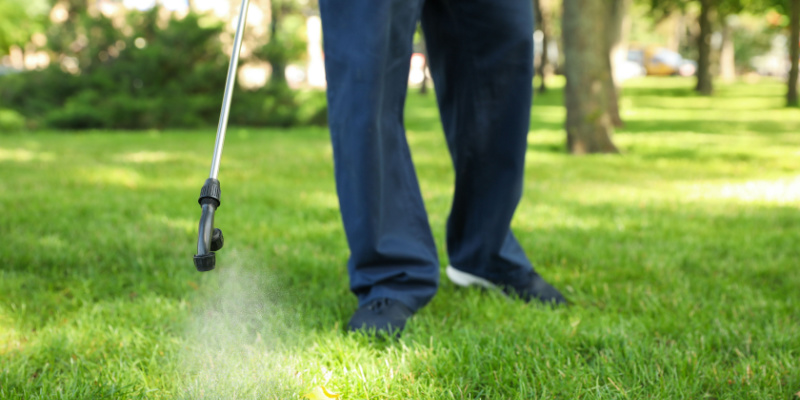A lush lawn is a source of pride for homeowners, but its health can sometimes be compromised by unseen culprits: insects. These tiny creatures have the potential to wreak havoc on your lawn, causing damage that may not always be immediately obvious. So, how do you know if insects are destroying your lawn? Here are ten signs to watch out for and the steps you can take to address the issue before it becomes a serious problem.
10 Signs Insects Are Destroying Your Lawn
1. Unexplained Brown Patches
If you notice unexplained brown patches in your lawn that seem to be spreading, insects could be the cause. Certain insects feed on grass roots, causing the grass to weaken and die off, resulting in these unsightly patches.
2. Increased Bird Activity
Birds, particularly crows and starlings, can be indicators of insect problems. They feed on insects that are unearthed while they’re foraging for food, so an increase in bird activity in your lawn could signal an insect infestation.
3. Visible Damage to Grass Blades
Some insects feed on the grass blades themselves, leaving behind chewed, ragged, or skeletonized grass blades. If you notice irregular damage patterns on your grass, it’s worth investigating further.
4. Tunnels or Trails
Certain insects, such as grubs, create tunnels or trails just beneath the surface of the soil as they feed on grass roots. These tunnels can disrupt the grass’s ability to absorb water and nutrients, leading to weak growth and discoloration.
5. Discolored Grass
Insect infestations can cause grass to change color. It might become yellow, brown, or even grayish in appearance. If your lawn’s color suddenly appears off, it’s worth examining for potential insect activity.
6. Excessive Lawn Thatch
Thatch is a layer of dead grass, roots, and debris that accumulates on the soil’s surface. While a thin layer is normal, excessive thatch can provide a hiding place for insects and create an ideal environment for them to thrive.
7. Presence of Insects
Sometimes, you might actually see the insects themselves. This could include ants, beetles, caterpillars, or other pests crawling on the grass or soil. Identifying the specific type of insect can help you determine the appropriate course of action.
8. Wilted or Wilting Grass
Insects that feed on grass roots can disrupt the plant’s ability to absorb water. If you notice areas of grass that appear wilted or are not responding to irrigation, insect damage might be the cause.
9. Irregular Growth Patterns
Insects can disrupt the growth patterns of your lawn, leading to uneven or patchy areas. This can make your lawn look unkempt and unhealthy.
10. Insect Infestation in Nearby Plants
If you have plants, shrubs, or trees near your lawn that show signs of insect infestation, there’s a possibility that the insects have spread to your lawn as well.
Steps to Address Insect Damage
- Proper Identification: Identifying the specific type of insect causing the damage is essential for effective treatment. Some insects require different methods of control, so getting it right is crucial.
- Consult a Professional: If you’re unsure about the type of insects or the extent of the damage, consider consulting a professional lawn care service. They can accurately diagnose the problem and recommend appropriate solutions.
- Implement Pest Control Measures: Depending on the type of insects, you might need to use pest control measures such as insecticides, nematodes, or beneficial insects that prey on harmful pests.
- Improve Lawn Health: A healthy lawn is better equipped to resist insect damage. Regular mowing, proper watering, appropriate fertilization, and aeration can create a less favorable environment for insects.
- Monitor Regularly: Regularly inspect your lawn for signs of insect activity. Early detection can prevent significant damage and make treatment more effective.
- Practice Good Lawn Care: Promote overall lawn health by following proper lawn care practices. A well-maintained lawn is less likely to succumb to insect infestations.
If you suspect insect damage but are unsure of the exact pests responsible, it is recommended to seek professional assistance. Weed Busters has a team of experts who can accurately diagnose the problem and provide effective solutions to protect your lawn. Don’t let insects ruin your landscape – contact Weed Busters today to ensure a thriving and pest-free lawn!

